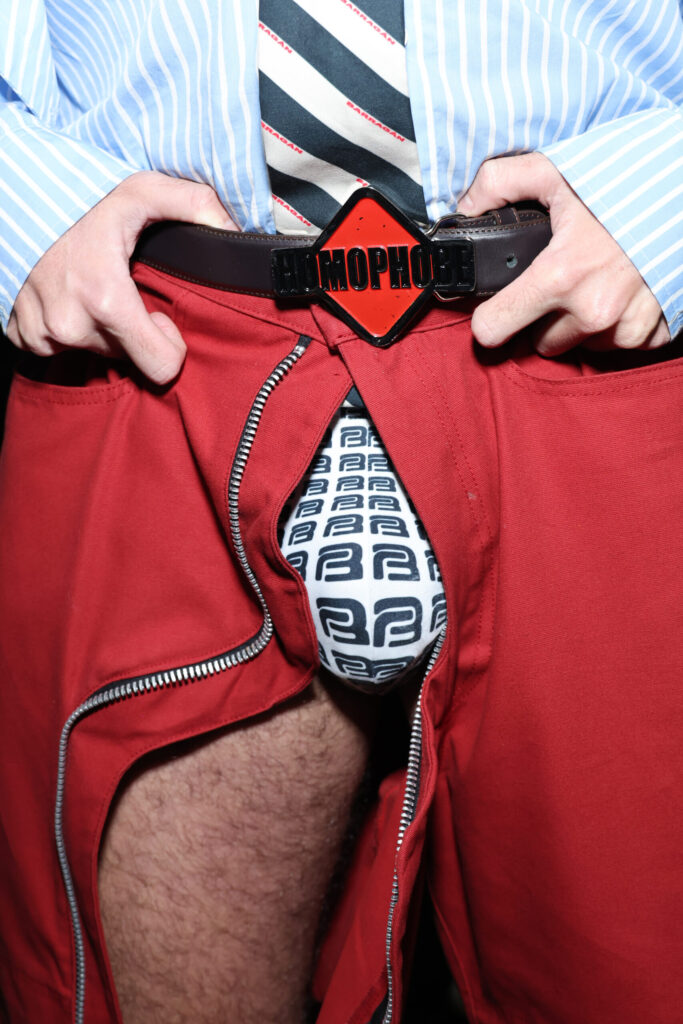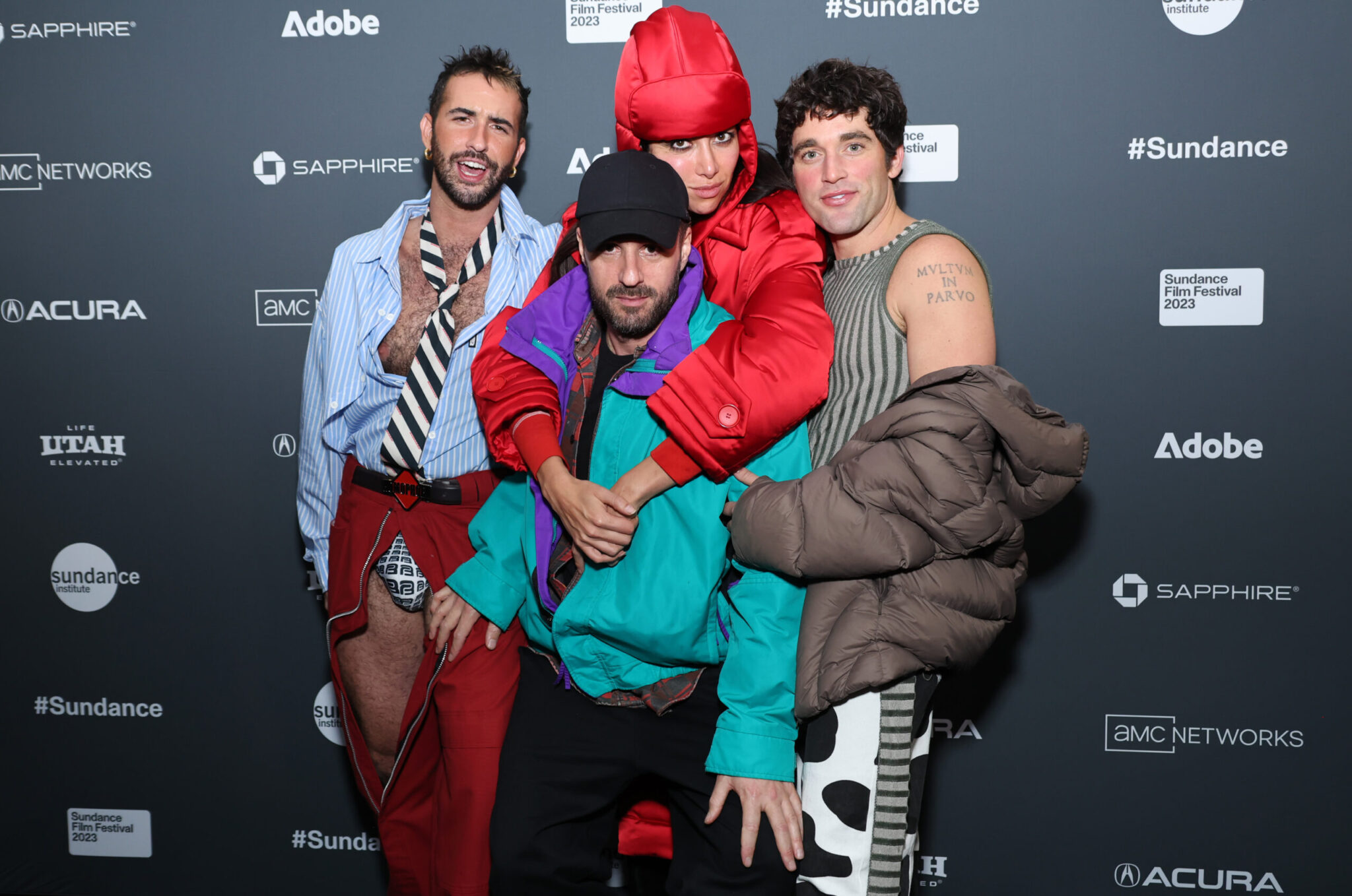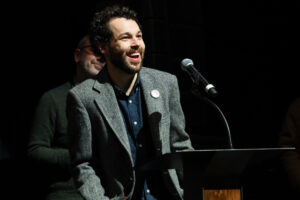By Katie Small
Chilean filmmaker Sebastián Silva has had eight films premiere in seven different categories of the Sundance Film Festival. “If there’s anything you learn during your time here at Sundance, know that we fucking love Sebastián Silva movies,” says Institute programmer Charlie Sextro while introducing Silva’s latest film, Rotting in the Sun, at its premiere on Sunday, January 22.
“When his films come in to the programming team, it’s like Christmas morning,” Sextro continues. “So many of the submissions are conventionally told stories, and we know that when we get something from Sebastián, it’s going to be wild, uncomfortable, hilarious, and surprising.”
With a warning for graphic sex attached to it, Rotting in the Sun is a dark comedy and quasi-missing-person mystery that explores classism, the art and industry of filmmaking, and influencer culture. The Spanish-language film takes realism to a new level; the story is inspired by true events and stars real-life characters.
Silva plays himself, with his friends filling out the cast. The film mainly takes place in Silva’s actual apartment in Mexico City, where he lives with his greyhound, Chima, and takes ketamine to pass the time, while his maid, señora Vero, cleans up his messes. The director plays a morose artist whose obsession with suicide colors his every interaction. Seeking a cure for his despondency, he takes a vacation to a nude gay beach where he meets Instagram influencer Jordan Firstman (also playing himself). The two decide to reunite in Mexico City to write a TV show together, but Silva’s sudden disappearance throws off the plan, setting the insatiable Firstman on a quest to discover why Silva is suddenly “ghosting” him.
Rotting in the Sun reunites Silva with Chilean actor Catalina Saavedra, who starred in his film The Maid. Her compelling performance as señora Vero anchors and elevates the wild and unconventional DIY comedy.
In the post-premiere Q&A, Silva is joined onstage by members of the cast and crew, including Firstman and Silva’s co-writer, Pedro Peirano. Silva says that the film was motivated by the extreme class differences in Mexico and a desire to point out the hypocrisy of liberals. “I wanted to make a hate movie towards myself and the people around me and, like, all of you guys,” Silva says, gesturing at the larger theater. “Everyone who’s involved in the arts and in movies. I was like, ‘Fuck us!’ We are disgusting, we truly are part of the problem, you know?” he continues. “I wanted to make a very misanthropic comedy. I felt like hating humanity and it worked.”
Audience members wanted to know to what extent the filmmaker and actors played their real-life personalities. “I’m obviously playing a heightened version of myself,” says Firstman. “I’d like to think that I have a little more social awareness in real life, but I think there might be some tinges of similar narcissism. But yeah, it was a challenge, playing myself. The cringiest part of the whole movie was watching the social media impressions that I actually do [in real life], you see them in the movie and you’re like, ‘That’s the least funny thing I’ve ever seen.’”
When asked if he really wants to kill himself, Silva speaks of how common suicidal ideations are among gay youth. “I don’t want it to get gloomy, but [as a gay kid] I did grow up with a suicide death wish, because I was like, ‘Is this likeness for dick ever gonna go away?’ I developed this idea, ‘If this doesn’t go away, I’m gonna kill myself.’ It was something that I lived with in my teenage years, and that sort of escapism stuck with me,” he explains.
“I don’t wanna kill myself, but I do have suicidal ideations, and I don’t find it so weird. It’s a really cruel world that we live in,” he continues. “I don’t wanna inspire you to kill yourself or anything, but I think it’s something worth talking about. Most of my movies have a death obsession, they push death as an option for suffering. It’s like, ‘Yeah, death might be better than suffering — we don’t even know what death is.’”











